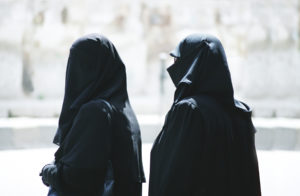On Monday, June 1, the U.S. Supreme Court ruled in favor of a young Muslim woman who was denied a job at Abercrombie and Fitch because her headscarf violated A & F’s “look policy.” Read more here. Despite the fact that A & F argued that it did not know that the scarf was a religious matter and therefore shouldn’t be held liable for discrimination.
Writing for the majority, Justice Scalia reasoned that the employer “at least suspected” that the applicant wore the head scarf for religious reasons and did not hire her in an attempt to avoid having to accommodate her religion, in violation of federal law. Importantly, the court held that an employee or applicant does not need to specifically ask for a “religious accommodation” in order to be entitled to one. The employer still has an obligation not to discriminate and to provide the accommodation if it ventures a guess that there is a religious need.
This is an important holding for employees who adhere to religions that might take some of their conduct and/or their appearance out of the mainstream. Employees might feel uncomfortable saying right away that the reason that they they can’t read emails on Sunday or drive a car on Saturday is a religious reason. But if an employer holds this fact against them- even guessing that the reason is religious- the decision may be unlawful discrimination. Of course, there are legitimate reasons that the employer could refuse the accommodation even if it is a religious matter and it knows it- one can imagine operating a dangerous machine while wearing loose-fitting clothing, or taking a job as a first responder with weekend shifts. But as long as the accommodation is reasonable, the employer can’t get out of it by claiming it didn’t know the accommodation was religious.

